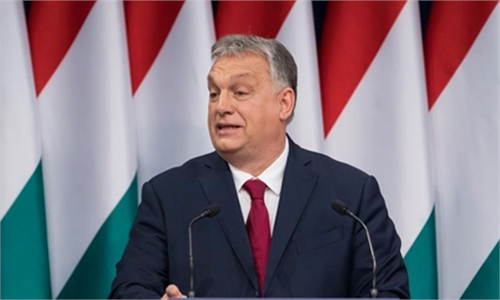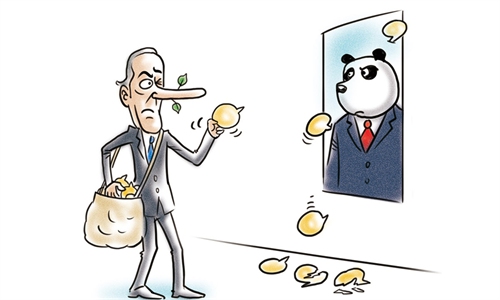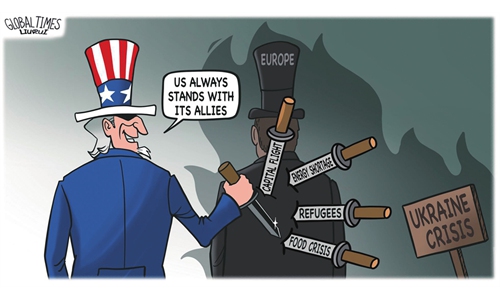
Illustration: Chen Xia/Global Times
Former European Central Bank chief and Italian prime minister Mario Draghi presented a report at a news conference in Brussels on Monday, titled "The Future of European Competitiveness." In the report, he calls for EU to "radically change." However, is the "prescription," offered by Draghi amid the EU's extreme anxiety over declining competitiveness, really what Europe needs?
The report's main concern is Europe's declining competitiveness. Europe is facing an unprecedented dilemma now, with sluggish economic growth, declining industrial competitiveness, high unemployment, and low business confidence. As a result, Europe has begun to explore various "prescriptions" for its challenges.
In the 69-page "Draghi's Report," China is mentioned in 25 pages. The report points out that "the EU's competitiveness is currently being squeezed from two sides. On the one side, EU companies are facing weaker foreign demand - especially from China - and rising competitive pressures from Chinese companies." In April, Draghi specifically condemned China for "threatening to undercut" Europe's industrial base by "attempting to capture and internalize all parts of the supply chain in green and advanced technologies."
"Draghi's Report" reflects Europe's overall anxiety. Understandably, Europe is seeking a way out of its current predicament. However, this solution should not involve position China as a target obstructing European development, nor should it come at the expense of China-EU relations. If the EU resorts to such an approach, it would not only fail to help Europe overcome its challenges but could even exacerbate its problems.
Europe's current economic difficulties reveal deep-seated structural defects. In the face of intense market competition, European companies are struggling to transform and adapt to new economic and technological developments, putting them at a distinct disadvantage in the global market. In this context, as China has made significant strides in emerging fields like renewable energy, some European viewpoints, with added pressure from the US, perceive the normal market relationship with China as excessive dependency and risk.
However, this perspective not only obscures Europe's own problems but also conflates competitiveness issues with complex geopolitical games, deepening Europe's economic predicament.
As a matter of fact, China and Europe share deep mutual interests in economic and trade relations, global governance, and politics. Despite their differences, the China-EU relationship enjoys strong endogenous driving force and bright prospects of development. The essence of China-EU cooperation lies in complementary advantages and mutual benefits. China can support Europe in the development of new energy, helping address the bottlenecks Europe faces.
The decline in competitiveness acts like an invisible net, making it difficult for Europe to compete globally. The more anxious Europe becomes, the more clear-minded it should strive to maintain. A simplistic pursuit of protectionism, as the US and EU are currently doing, cannot address the fundamental, deep-seated issues facing Europe. The EU should resolve trade frictions with China through dialogue and consultation, taking into account each other's legitimate concerns, while avoiding retaliatory trade conflicts and preventing a lose-lose situation. Only by doing so can the EU enhance its competitiveness. Europe's "prescription" should not focus on exaggerating how China has "squeezed" Europe's survival space; instead, it should concentrate on fixing its own structural defects.



